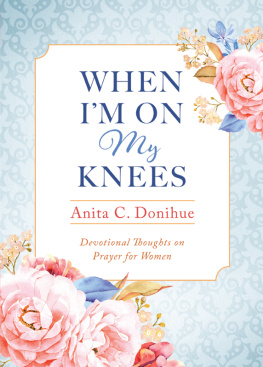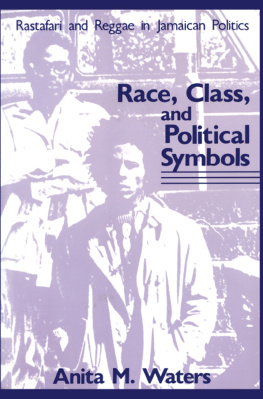RACE AND DRUG TRIALS
To the memory of my mother,
Grace Nwobiara Kalunta
and
the long and fruitful life of my father,
Chief Dr Ariwodo Kalunta
Race and Drug Trials
The Social Construction of Guilt and Innocence
Anita Kalunta-Crumpton
Institute of Criminal Justice Studies,
University of Portsmouth
First published 1999 by Ashgate Publishing
Reissued 2018 by Routledge
2 Park Square, Milton Park, Abingdon, Oxon OX14 4RN
711 Third Avenue, New York, NY 10017, USA
Routledge is an imprint of the Taylor & Francis Group, an informa business
Copyright Anita Kalunta-Crumpton 1999
All rights reserved. No part of this book may be reprinted or reproduced or utilised in any form or by any electronic, mechanical, or other means, now known or hereafter invented, including photocopying and recording, or in any information storage or retrieval system, without permission in writing from the publishers.
Notice:
Product or corporate names may be trademarks or registered trademarks, and are used only for identification and explanation without intent to infringe.
Publisher's Note
The publisher has gone to great lengths to ensure the quality of this reprint but points out that some imperfections in the original copies may be apparent.
Disclaimer
The publisher has made every effort to trace copyright holders and welcomes correspondence from those they have been unable to contact.
A Library of Congress record exists under LC control number: 98031705
ISBN 13: 978-1-138-33131-0 (hbk)
ISBN 13: 978-0-429-44737-2 (ebk)
This book illuminates one recurrent debate in criminology: the influence of race for defendants in the criminal justice system. It does so through a detailed analysis of the nuances of the process of 'doing justice' in court. A very public event, the trial serves as a display of its neutrality. After all, if evidence is aired in public, does this not reassure that the process is monitored and accountable to all? So why has there been so much attention paid to debates about the high proportion of black people in prison, for instance, without careful attention to the processing of such defendants during a trial? Can we be assured that legal procedures in any English criminal court have no trace of 'institutional racism'?
Anita Kalunta-Crumpton's book opens up a novel way of viewing the processing of defendants - both black and white - who are charged with possession and sale of drugs. What she shows is that prosecution, defence, the witnesses and the judges seem to agree on the use of language that crystallises popular beliefs about black and white people as racial groups. And these racial groupings absorb common sense discourses that confer the naturalness of such characteristics as 'deprived', 'unemployed', 'possibly violent', 'unclean', and 'sexually promiscuous'. This social context in effect embeds 'race' and possibly 'racism' within the contours of each aspect of the criminal justice process. Kalunta-Crumpton's analysis must prompt us to look at more creative ways of exploring and challenging racism in the criminal justice system.
This book will extend the debates about race in the criminal justice system. It is a readable, accessible, straightforward account of trial strategies in drug cases. Kalunta-Crumpton's analysis deserves to be read by criminal justice practitioners and theorists alike.
Professor Elizabeth A. Stanko
Director, ESRC Violence Research Programme
Brunel University
Uxbridge, Middlesex
This book raises serious issues for modernist and neo-modernist accounts that privilege the role of facts and values in the explanation of the evolution and practice of penal juridification. The book does not argue that these accounts are wrong but suggests that procedural requirements are less important than the practice of 'claims-making' by social actors with power based hierarchical credibility who interact symbolically in the court process, from the beginning to the end and not just at the more researched point of sentencing, thereby sociallyconstructing the meaning of guilt and innocence in drugs trials involving an increasing proportion of black defendants.
The Author argues that attempts to explain the over-representation of black people in custody fail to focus on the symbolic interactionism of the court process itself which she studied with the appropriate methodology of direct observation. Anita also looked beyond the trial process and reviewed relevant literature on policing, sentencing and prisons against a historical background of government drugs policies from the distant past to the present. As successive governments relaunch the war that was presumably lost by their predecessors, the war against drugs, the theory of claims-making could serve as a warning to drugs Tsars and drugs courts that the social construction of guilt and innocence in court works against black people who possess relatively fewer power resources. Hence, a neglected reason why black people are being over-represented in prisons is being analysed here by the author as the power-loaded discourse of claims-making in drugs trials.
Biko Agozino, Liverpool
I thank all those whose contacts and involvement provided access to materials valuable to this book but for reasons of confidentiality, they cannot be named.
To my friends, I owe praise for their understanding and reassurance.
To my colleague, friend and 'brother', Dr Biko Agozino, I thank for being such a strong shoulder to lean on.
To Professor Elizabeth Stanko who supervised the Doctoral thesis on which this book is based, I thank for her understanding, commitment and professional help throughout the term of the thesis.
To my family, I owe gratitude for their encouragement and moral support.
To my best friend and confidant, David, I will forever remain grateful.
Most of all, I owe my sincere and humble thanks to God for giving me the strength and inspiration that guided me throughout the entire work.
Over the years, there has been a growth in concern over the position of black people as suspects, defendants and offenders in the criminal justice system in Britain. Questions have arisen about the overrepresentation of black people in the arrest, conviction and prison statistics and an extensive research literature has provided theoretical and empirical evidence as to the relationship between black communities and the police (Lambert, 1970; Humphrey, 1972; Stevens and Willis, 1979; Gordon, 1983; Smith and Gray, 1985; Pitts, 1986; Osborne and Bright, 1988; Day, 1989; Hall, 1989; Solomos, 1988a, 1989, 1993; Jefferson, 1988, 1991; Smellie and Crow, 1991; Cashmore and McLaughlin, 1991; Keith, 1991; Smith, 1994), the pre and post conviction processing of black people (Fludger, 1981; Kettle, 1982; Cain and Sadigh, 1982; McConville and Baldwin, 1982; Gordon, 1983; Crow and Cove, 1984; National Association for the Care and Resettlement of Offenders (NACRO), 1986; Hall, 1989; Walker, 1988; Day, 1989; Smellie and Crow, 1991; Hood, 1992; Home Office, 1992; Smith, 1994; Penal Affairs Consortium, 1996; Agozino, 1997; Mhlanga, 1997), and the possible link between black people and crime (Lea and Young, 1984, 1993).







![Anita Anand - The Library Book. Anita Anand ... [Et Al.]](/uploads/posts/book/40194/thumbs/anita-anand-the-library-book-anita-anand-et.jpg)



